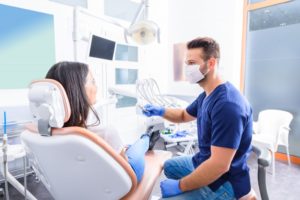
If you’re suffering from sleep apnea, you’re likely dealing with the daytime lethargy that results from not getting adequate rest at night. Naturally, you may find yourself nodding and napping during the day. Unfortunately, this can disrupt your sleep apnea therapy. Continue reading to find out why napping and sleep apnea don’t work well together and discover some minor changes you can make to rest better!
The Problems with Daytime Naps
While a “power nap” may seem like a helpful way to catch up on missed sleep opportunities, it can actually interfere with your body’s natural clock (especially for those with sleep apnea). The fact is sleep loss is cumulative and can’t be made up. The optimal time range for sleep at night is between 11 pm and 8 am. Attempting to slumber at times that are contrary to your body’s natural sleep cycle sends mixed messages that can make your sleep apnea worse.
Why Naps aren’t Completely Bad
Under normal conditions, a daytime nap may help increase alertness and have rejuvenating effects, so they can actually be helpful in normal situations. Unfortunately, this isn’t the case for people who have been diagnosed with sleep apnea. On the contrary, an unscheduled nap can leave them feeling unrefreshed.
Ways to Improve Your Sleep
Prolonged sleep loss can lead to a host of issues, which includes inflammation in the brain, stroke, diabetes, hypertension, heart disease and various other life-threatening conditions. Thus, it’s important to put the time and effort into improving your sleep.
Here are some helpful tips:
- Purposely skip naps.
- Limit your consumption of alcoholic beverages, especially at night.
- Discontinue the usage of electronic devices at least an hour before retiring for bed.
- Incorporate a nighttime ritual like reading a book or meditating before going to bed.
- Make sure your bedroom is completely dark when you’re sleeping and unplug all electronic devices.
- Stop eating around two hours before bedtime, so that your body isn’t working to digest food instead of resting.
Reconsider Your Treatment Method
If you’re currently being treated with a CPAP (continuous positive airway pressure) machine, you may consider trying another treatment method. For many patients, the machine is rather cumbersome and uncomfortable to use. That can affect the quality of sleep that can be achieved.
An alternative is to have a custom oral appliance crafted. The smaller, portable device easily fits into the mouth and works to gently shift the jaw so there is no obstruction to your breathing while sleeping. By helping to encourage better sleep, it decreases the need for daytime naps and aids in the maintenance of your natural internal clock.
If you’re not getting the results you desire from your current sleep apnea treatment and you feel the urge to take daytime naps, it’s worth considering some other treatment options and incorporating the above tips. Therefore, you can go on to become the healthiest and best version of yourself!
About the Author
Dr. Eric Buck earned his dental degree from The Ohio State University College of Dentistry. He has since gone on to receive advanced postgraduate training that allows him to effectively treat sleep apnea. Additionally, Dr. Buck maintains professional affiliation with the American Academy of Dental Sleep Medicine. He helps patients rest better at The Columbus Sleep Center, and he can be reached for more information or to schedule a visit through his website.
